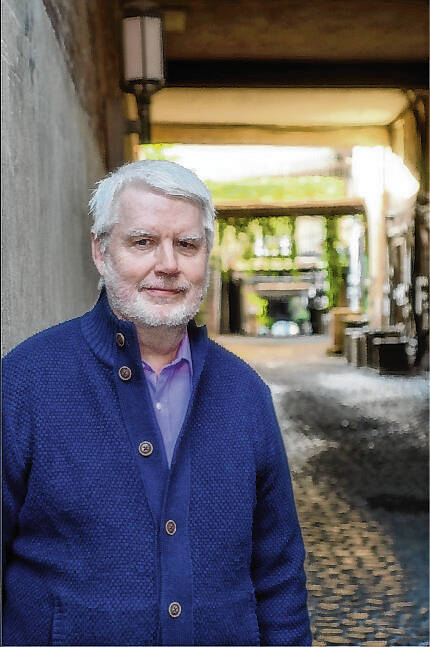
Carlson
Several years ago, I was invited to speak at a conference center in southern Wisconsin on interfaith relations.
It wasn’t until I looked at the conference brochure that I realized that I’d be returning to a place where I’d spent summers as a boy.
The conference center was always magical to me.
The grounds were extensive, with a famous golf course, a luxury hotel, and rustic cabins set along the shore of Wisconsin’s deepest lake.
That was where I learned to swim and fish.
It was also where I joined other ministers’ kids from around the country in sports and crafts.
My memories of the place were all golden.
The only drawback of those magical weeks was my father’s requirement that we attend the evening religious services.
After days full of fun and with evening sunlight still beckoning from outside, it felt like punishment to me as a youngster to sit through sermons that seemed interminable.
All that changed one night when I was 10 years old.
My father let my mom and sister off the hook, but he took my brother and me to hear a speaker he said was special.
When we arrived, I knew something was different about that night.
The auditorium, a huge Quonset hut, was packed, and there was a nervous buzz in the room.
Looking back now, I’m confident that there were reporters in the audience as well.
The speaker that evening was Martin Luther King, Jr.
When he was introduced, I learned that he’d just been released from jail.
For a 10-year-old, it was a new experience to be in the presence of someone who’d been in jail.
Going to jail was what happened to bad people, but King’s incarceration was spoken in reverent tones that night.
I wish I could say that I remember what King said that evening.
In archives somewhere, I’m sure his talk has been preserved.
What I do remember is King’s calmness as he spoke without notes.
All this came back to me when I drove into the conference center a few years ago.
The place had aged.
The luxury hotel didn’t look so luxurious.
The swimming pool where I’d learned to swim had been filled in and turned into a garden.
The lake, however, was as beautiful as I remembered it.
I looked up the hill to where I expected to see the historic Quonset hut where King had spoken, but it had been torn down.
I’m sure the facility was too old to preserve and was maybe even a fire hazard, but its absence felt like a holy space had been lost.
But as the time approached when I would speak, I felt King’s presence.
On the night he spoke, I’m sure there were many ministers present who thought he was impatient as he pushed for change.
King would describe those detractors as advocates of “gradualism,” fellow ministers who thought he should proceed slowly in pushing for civil rights, not march in the streets and stir up so much dissension.
Many ministers would also question my current commitment to spiritual friendships with people from different faiths, especially my warm friendships with Muslims.
But as I began to speak, I remembered King marching arm in arm with Jews, Muslims, Buddhists, as well as atheists.
In that moment, the loss of the Quonset hut no longer mattered to me.
Feeling King’s nearness and encouragement, I knew the ground on which I was standing would always be holy ground.
And in that assurance, I felt his calmness.
David Carlson of Franklin is a professor emeritus of philosophy and religion. Send comments to [email protected].